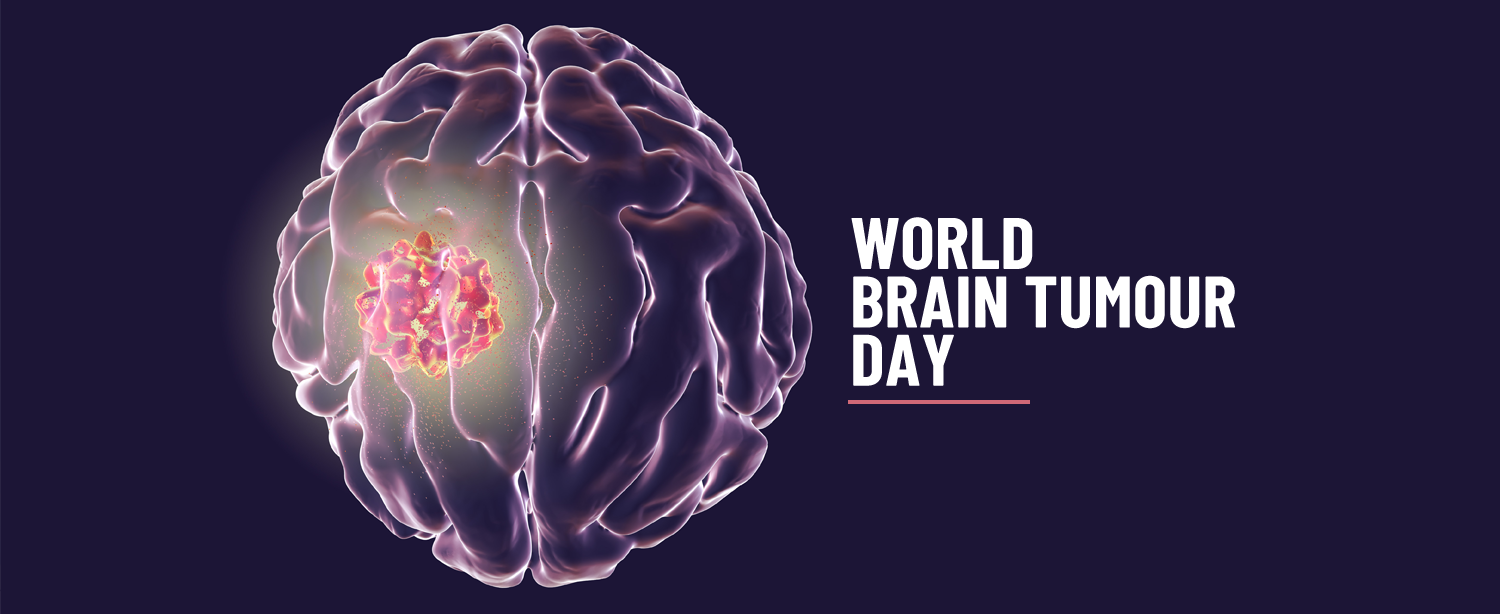The experience of you or a loved one going through a brain tumour diagnosis and treatment can be confusing, frightening, and isolating. However, advances in science, medical technology, and cutting-edge infrastructure have played a significant role in lowering the mortality rate of brain tumour patients and improving their quality of life. Early detection and timely treatment is the key towards efficient management of brain tumour.
A brain tumour is an abnormal growth of cells inside the brain or skull; some are benign, while others are cancerous. Tumours can develop from the brain tissue itself (primary), or cancer can spread to the brain from elsewhere in the body (metastasis). Treatment options vary depending on the type, size, and location of the tumour. Treatment objectives may be curative or symptomatic. Many of the 120 types of brain tumours can be successfully treated if detected early.
Symptoms of Brain Tumour
Every person diagnosed with a brain tumour will have different symptoms and their own journey to a diagnosis. While some people do not develop symptoms that would indicate a tumour, others may have symptoms that worsen overtime eventually leading to a diagnosis. Here are some symptoms that need further investigation:
- Cognitive or behavioural changes
- Dizziness or unsteadiness
- Double or blurred vision
- Frequent headaches
- Seizures
- Weakness or paralysis
Types of Brain Tumour
Brain tumours are classified into:
- Primary brain tumours include tumours that originate from the tissues of the brain or the brain’s immediate surroundings.
- Secondary brain tumours start somewhere else in your body and travel to the brain. Lung, breast, kidney, colon, and skin cancers are among the most common cancers that spread to your brain.
Malignant and non-malignant Brain Ttumours
Benign brain tumours don’t have cancer cells. They grow slowly, are easily removed, and seldom spread to the surrounding brain tissue. They can be life-threatening depending on which section of the brain they occur in. Cancer cells can be seen in malignant brain tumours that grow quickly and have the ability to infiltrate healthy brain tissue and cause damage.
Brain Tumour Risk Factors
The cause of brain tumour is still largely unknown. Although some genetic conditions and environmental factors may contribute to the development of brain tumour and may increase your risk of having it. These include:
- Gender: Certain cancers, like meningiomas, are twice as likely to develop in women, while medulloblastomas are more frequently found in males.
- Age: The frequency of brain cancer increases with age, with more occurrences in individuals age 65 and older.
- Compromised immune system: Some people with compromised immune systems have an increased risk of developing lymphomas of the brain.
- Genetic links: Certain inherited conditions make you more prone to have brain tumours.
- Chemical exposure: Exposure to certain industrial chemicals or solvents has been linked to an increased risk in developing brain cancer.
- Previous radiation treatment: Exposure to radiation therapy, particularly at a young age, may increase the likelihood of developing brain cancer.
There is no defined way to prevent a brain tumour. However, you can reduce your risk of developing a brain tumour by avoiding environmental hazards such as smoking and excessive exposure to radiation.
Brain Tumour Treatment at Kokilaben Dhirubhai Ambani Hospital
A brain tumour is a rare diagnosis, but if detected may cause immense emotional and physical discomfort to the patient. Our Centre for Neurosciences offers multi-disciplinary care and assists your brain tumour journey through diagnosis, treatment, follow-up visits and rehabilitation care. Our team of highly trained neurologists are well equipped with the most advanced imaging technology to help identity and diagnose your brain tumour with utmost accuracy. Our dedicated team of neurosurgeons, medical oncologists, neuroradiologists, paediatric oncologists and neurorehabilitation experts support our patients with all aspects of living with a brain tumour and is equipped with advanced treatment options. Our team of neorurosurgeons offer high-quality treatment options that include chemotherapy, radiation therapy, targeted therapy, surgery, etc. Expert neurosurgeons at our Centre for Neurosciences have performed about 1375 brain tumour surgeries with positive results in the past. Our Centre for Physical Medicine & Rehabilitation understands the nuances of brain tumour and supports patients recovering from a surgery with the most advanced and trusted rehabilitation techniques. Our specialists also use the latest operative advances with navigation, stereotactic radiotherapy, awake surgery techniques, neurophysiology monitoring with MEP and SSEP to help deliver better outcomes. Here are some of the innovative technologies we use:
- Cavitron Ultrasonic Aspirator (CUSA) – Increases safety and reduces operating time during a brain surgery.
- NEURONAVIGATION SYSTEM – Guides neurosurgeons during brain tumour surgery for better surgical outcomes.
- ZEISS OPMI Pentero Microscope – Provides neurosurgeons with more powerful magnification during brain tumour removal and resections.
- 3T Magnetom trio – Utilizing shorter scan times and providing maximum patient comfort, this high field MRI offers high-end imaging results.
- NOVALIS TX(Stereotactic Radiosurgery) – Used to treat brain tumours.
- Leksel stereotactic system – Used in stereotactic biopsy of brain tumours and stereotactic radiosurgery.
For further information on our Centre for Neurosciences, please visit the below link: https://www.kokilabenhospital.com/departments/centresofexcellence/centrefor_neurosciences.html


